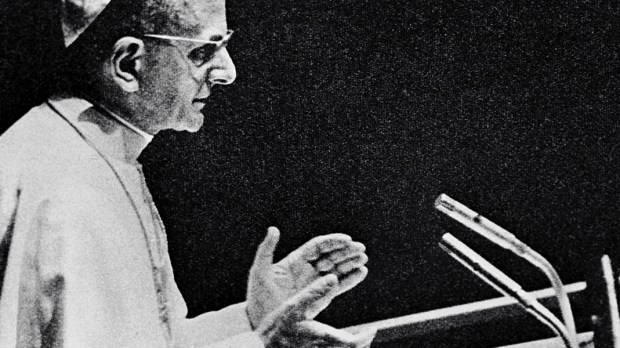It’s the beginning of the 1970s: times of unrest in the world and in the Church. It’s the period immediately after the Second Vatican Council. Pope Paul VI writes a letter that will remain unpublished until 2018, when its content is revealed in the book The Barque of Paul (“La barca di Paolo“), by Fr. Leonardo Sapienza, regent of the Pontifical Household.
It’s June 29, 1972. Paul VI has a clearer and clearer impression that there is something deep and negative that is increasingly afflicting the Church. The path towards secularization and the lack of internal unity are becoming two great problems for the Church throughout the world.
The pope, concerned, writes:
“… We would say that, through some mysterious crack—no, it’s not mysterious; through some crack, the smoke of Satan has entered the Church of God. There is doubt, uncertainty, problems, unrest, dissatisfaction, confrontation.
“The Church is no longer trusted. We trust the first pagan prophet we see who speaks to us in some newspaper, and we run behind him and ask him if he has the formula for true life. I repeat, doubt has entered our conscience. And it entered through the windows that should have been open to the light: science.”
Storm clouds
The post-conciliar wounds make themselves felt:
“… It was thought that, after the Council, sunny days would come for the history of the Church. Nevertheless, what came were days of clouds, of storms, of darkness, of searching, of uncertainty … We tried to dig abysses instead of covering them …”
Terror and ecstasy
The fact that the pope was concerned is also shown by another thought that he’d written eight days earlier, on June 21, 1972. The title alone is disturbing: “Terror and ecstasy.”
Perhaps the Lord
called me to this service
not for me to adopt any attitude,
or so that I would govern and save the Church from its difficulties,
but so that I would suffer something for the Church,
and so it be made clear that it is Him, and no one else,
who guides it and saves it.
June 21, 1963: exactly nine years before writing that thought, Giovanni Montini had been elected pope. He wrote this about it:
“… I hope that all believe me when I say that not only did I never aspire, nor even formulate the hypothesis of being elected to this formidable office …”
Years later, during the turbulent year of 1968, in a conversation with his friend the French writer Jean Guitton, the pope said:
“… I had the terror and the ecstasy of having been elected …”
Once he accepted the weight of the pontificate, Paul VI consecrated all his strength to it, in the midst of uncountable obstacles.
The responsibility of the Vicar of Christ is terribly heavy, because it is the office of the shepherd called to give his life for his sheep. Let us always pray for Peter’s Successor and for the Church, under the clouds of the tempest.

